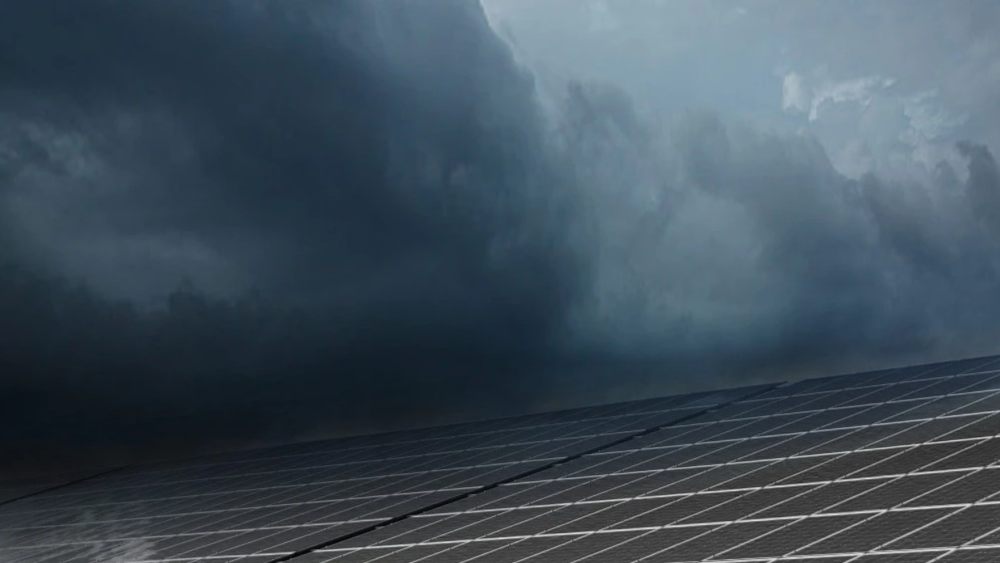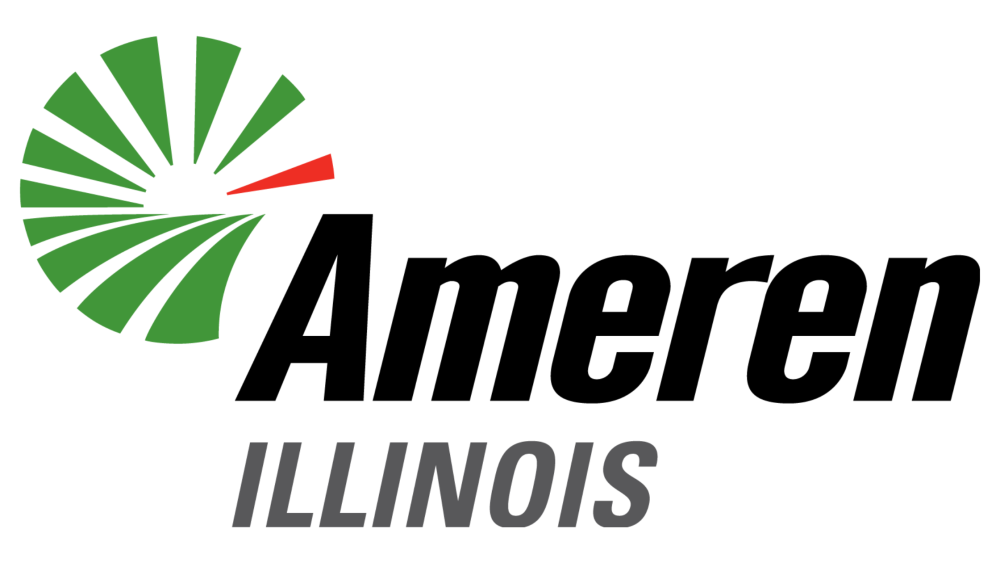Try our solar cost and savings calculator
What solar incentives are available in Arkansas?
As a homeowner in Arkansas, you have access to several different tax incentives that make solar panels more affordable. Solar incentives are available at both the federal and state levels to help you save thousands on your investment in solar energy.
Solar Calculator is here to help you take the next step in your transition to renewable energy. Below, we’ll discuss some of the different ways you can make solar more affordable.
Federal solar incentives
As part of the Inflation Reduction Act of 2022, congress passed several clean energy provisions to reduce energy costs. Among those provisions was an extension and upgrade of the Federal Investment Tax Credit (ITC).
Federal Investment Tax Credit
The Federal ITC allows you to claim 30% of your total equipment and installation costs on your federal taxes. There is no minimum or maximum amount you can claim and it includes equipment, installation, permitting, and even battery storage.
The ITC will remain at 30% until December 31, 2032. After that it will be reduced to 26% until December 31, 2033, then to 22% the following year. The ITC is currently set to disappear in 2035 unless it is renewed.
Who is eligible for the Federal ITC?
Most homeowners will qualify for the Federal ITC, but not all. You must meet the following criteria to claim your 30% tax credit:
The Federal ITC will also cover the following expenses:
Homeowners save around $10,000 on average with the Federal ITC. But that number can be higher or lower depending on your total expenses.
How to claim the Federal ITC
Claiming your Federal ITC couldn’t be easier. All you have to do is fill out IRS form 5695 and submit it with your tax return. You can consult with a tax professional for more assistance.
Local solar incentives
Who’s eligible : State Government
How to apply : Effective July 1, 2005, Act 1770 (the Arkansas Energy and Natural Resources Conservation Act), encourages (but does not require) all state agencies, including institutions of higher education, to use Leadership in Energy and Environmental Design (LEED) and Green Globes rating systems whenever possible and appropriate in conducting or funding a public building project. Title 22 of the Arkansas Code includes Arkansas-specific provisions for LEED and Green Globes certification. These rating systems add to the state building energy code established in 2004 for New Building Construction. Under the Arkansas-specific provisions, those pursuing LEED certification receive additional credit for the use of composite wood and agri-fiber products, post-consumer recycled content, renewable bio-based materials, carbon-sequestering bio-based materials, and bio-based materials from other certified sources. Those using the Green Globes rating system receive additional credit for carbon-sequestering, bio-based materials and bio-based materials from certified sources. The Sustainable Energy-Efficient Buildings Program, enacted April 2009 with the passage of HB 1663 (Act 1494), directed the Arkansas Energy Office to develop a plan for reducing energy use in all existing state-owned major facilities by 20 percent from 2008 levels by 2014 and 30 percent by 2017. Major facilities are defined as construction projects larger than 20,000 gross square feet of occupied or conditioned space. Major renovations are defined as projects for major facilities, where the renovations cost over 50% of the insured value. For new construction and major renovations, the criteria specify that public buildings must be certified to be at least 10% more efficient than ASHRAE Standard 90.1-2007, as it existed on January 1, 2009. The Arkansas Energy Office will develop a program to manage energy, water, and other public agency utility uses to reduce total energy consumption as long as the savings can be justified by a life cycle cost analysis. The Arkansas Energy Office will update this program annually. HB 1663 (Act 1494) also directed the Arkansas Energy Office to complete an energy audit of every public facility within five years. In May 2009, Governor Mike Beebe issued Executive Order 09-07, directing all executive-branch agencies to submit strategic energy plans describing energy-savings measures that can be implemented by the agencies. The plans should include provisions for collecting and monitoring energy use data. The agencies submitted these plans by October 31, 2009, as well as the energy use information for all their facilities by April 1, 2010. Other state agencies are encouraged to develop strategic energy plans, as well.
Who’s eligible : Commercial
How to apply : The Arkansas Department of Transportation (DOT) plans to use NEVI funding to set up a competitive procurement process for EVSE (EV supply equipment) site hosts, owners, and operators throughout the state. Funding will be used to build out charging infrastructure along the state's interstates and routes of significance, coordinating with neighboring states when necessary. NEVI funding will help construct about 512 miles of EV charging corridors. The procurement will be conducted through a competitive grant program, and an updated plan was released in August 2023, stipulating that an RFP would be released in the summer/fall of 2023, with first round awards to be announced in late 2023/early 2024 per the updated plan schedule. As of June 2024, the ARDOT is still developing its program.
Who’s eligible : Construction, Local Government, Installers/Contractors
How to apply : On March 2015, the Arkansas legislature passed SB 896 or the “Local Government Energy Efficiency Project Bond Act” which provides enabling legislation for a municipality or a county to issue energy efficiency project bonds. As currently effective, the law is a local option, meaning that local governments are permitted to decide whether or not to allow it. Eligibility These bonds only apply to local governments, including municipalities and counties. The act expressly exempts the use of such bonds by State agencies, school districts, or special assessment or taxing district established by the State. Program Description The local government may use these bonds to finance energy efficiency projects that i) provide guaranteed energy cost saving via reducing energy consumption or operational cost, and ii) to purchase and install energy efficiency projects. Local governments are authorized to enter into “guaranteed energy cost savings contract”, also popularly known as Energy Performance Contracting (EPC), which is a financing technique that uses cost savings from reduced energy consumption to pay for the cost of energy efficiency projects. The energy efficiency project can be for both new and existing facilities, which must be designed to reduce consumption of energy or national natural resource or result in operating cost savings of the changes. These changes must be measurable and verifiable under the international performance measurement and verification protocol, as adopted by the Arkansas Energy Office, and must be measured and verified by an audit performed by an independent auditor. The local legislative body may only issue bonds after it determines that i) all of the energy efficiency project will be performed by a qualified providers, and ii) the qualified provider has provided a guarantee of the operating cost savings to be realized from the project. If the savings fail to meet the expected goal, then the provider must reimburse the shortfall. The bonds may be issued for a maximum of 20 years, or the useful life of the project. The bond is to be secured by a pledge of operating cost savings from the energy efficiency project, and will be paid through the revenues derived from taxes, or any other revenues available to the local government. Tax Exemption These bonds and the income from the bonds are exempt from all state, county, and municipal taxes, including without limitation income, property, and inheritance taxes.
Who’s eligible : Commercial, Local Government, Nonprofit, Schools, State Government
How to apply : Note: There are currently no program funds for 2024 The Reduce Emissions from Diesels (Go RED!) Program is a competitive grant program for eligible public, private, and nonprofit entities in the state to reduce diesel emissions. Eligible projects include vehicle (school/transit buses, medium-duty trucks, heavy-duty trucks, etc.) replacements, and engine upgrades, among others. Eligible costs for battery electric powered vehicles include the purchase/installation of one charging unit per vehicle. Applications are accepted on a rolling basis using the schedule below and are dependent on the remaining funds: December 31, 2022 (First application period); January 31, 2023 (Second application period); February 28, 2023 (Third application period); March 31, 2023 (Fourth application period); April 30, 2023 (Fifth application period); May 31, 2023 (Sixth application period); June 30, 2023 (Final application period)
Who’s eligible : Commercial, Local Government, Nonprofit, Schools, State Government
How to apply : *Note: Most recent application period closed on March 15, 2023 The Clean Fuels program is a competitive grant program to repower or replace eligible medium trucks, heavy trucks, or buses with lower-emitting alternative-fueled technologies. The purpose of the program is to reduce the emission of nitrogen oxides across the state.
Can you claim multiple tax incentives in Arkansas?
Yes. You are allowed to claim multiple solar incentives for the same installation. However, you can only claim each incentive once. For more guidance on how to claim your solar tax incentives, talk to your installer or consult with a licensed tax professional before submitting your tax forms.
Does Arkansas offer tax exemptions?
Rebate Program
Category : Financial Incentive
Website : https://www.entergy-arkansas.com/your_home/save_money/ee/residential-solutions/
Applicable Sectors : Residential, Installers/Contractors, Multifamily Residential
Incentive Amount : Home Energy Solutions Program The program offers installation measures at no additional cost including LED Bulbs, Energy-Efficient Showerheads, Kitchen & Bathroom Faucet Aerators, and Advanced Power Strips. Other measures are offered at a discount including Air Sealing, Duct Sealing, Ceiling Insulation, and Air Conditioner Tune-Ups Point of Purchase Program Advanced power strip: Up to $15 per unit Energy Star qualified air purifiers: $35 per unit Energy Star qualified dehumidifiers: $25 per unit Energy Star qualified smart thermostats: $60 per unit Energy Star qualified compact, chest, or upright freezer: Up to $50 per unit Energy Star qualified heat pump water heaters: Up to $500 per unit Energy Star Most Efficient room air conditioners: $50 per unit Weatherization: Up to $5 per unit
Implementing Sector : Utility
Category : Financial Incentive
Website : http://www.entergyarkansas.com/your_business/save_money/EE/citysmart.aspx
Applicable Sectors : Local Government, Nonprofit, Schools, Federal Government, Tribal Government, Institutional
Incentive Amount : PC Power Management: $0.10/kWh All other measures One Measure: $0.12/kWh Two Measures: $0.13/kWh Three Measures: $0.14/kWh Comprehensive Measures (4 +): $0.15/kWh
Implementing Sector : Utility
Category : Financial Incentive
Website : http://www.entergy-arkansas.com/your_business/save_money/EE/business-solutions.aspx#agri
Applicable Sectors : Agricultural
Incentive Amount : Custom: $0.17/kWh saved Agricultural Irrigation Load Control Program: $50-$650/month Lighting and Lighting Controls: Varies, contact utility for details
Implementing Sector : Utility
Category : Financial Incentive
Website : https://www.aogc.com/energyefficiency.aspx
Applicable Sectors : Residential, Multifamily Residential, Low Income Residential
Incentive Amount : Gas Furnace: 90%-94.9% efficienct: $400 (Customer Rebate), $50 (Trade Ally Rebate) 95% efficient or higher: $800 (Customer Rebate), $50 (Trade Ally Rebate) Natural Gas Water Heater: 0.90 EF or higher or 90% TE or higher: $700 (Customer rebate), $50 (Trade Ally Rebate) Smart Thermostat: $100
Implementing Sector : Utility
Category : Financial Incentive
Website : http://www.entergy-arkansas.com/your_business/save_money/EE/business-solutions.aspx
Applicable Sectors : Commercial, Industrial, Federal Government, Agricultural
Incentive Amount : Small Business Energy Solutions (under 100kW): $0.17 - $0.35/kwh Large Commercial/Industrial: $0.10 - $0.18/kwh Agricultural Solutions: Varies
Implementing Sector : Utility
Category : Financial Incentive
Website : https://central.libertyutilities.com/all/residential/ways-to-save/arkansas-electric-commercial-industrial-program.html
Applicable Sectors : Commercial, Industrial
Incentive Amount : Lighting Lighting Controls: $25-$135 Lighting Optimization: $6-$8 /fixture Lighting Fixture: $27-$90 /fixture LED Lamp Replacement: $7-$8 /fixture LED Parking Garage/Canopy: $40-$280 /fixture LED Wall Mounted Area Lights: $40-$280 /fixture LED Exit Signs: $17 /fixture LED Flood Lights: $40 /fixture HVAC Water Cooled Chiller: $35-$50 /ton Room A/C: $20 /unit Central A/C: $10-$30 /ton Heat Pump: $50 /ton Packaged Terminal A/C: $40 /unit Packaged Terminal Heat Pump: $40 /unit Guest Room Energy Management: $130 /unit Variable Speed Drive: $500 /unit Demand Controlled Ventilation: $700 /unit Kitchen Measures Evaporator Fan Control, with EMS: $80 /unit Strip Curtain: $5 /linear ft Night Covers: $20 /linear ft Door Heater Controls: $40 /unit Refrigeration Economizer: $150 /unit Custom Custom Project: $0.20 /kWh
Implementing Sector : Utility
Category : Financial Incentive
Website : http://www.entergyarkansas.com/smallbusiness
Applicable Sectors : Commercial, Industrial, Federal Government
Incentive Amount : Lighting and Lighting Controls: $0.17 per kWh HVAC Replacement: $0.17 per kWh Duct Sealing:$0.35 per kWh Ceiling Insulation: $0.35 per kWh Refrigeration: $0.30 per kWh
Implementing Sector : Utility
Category : Financial Incentive
Website : https://swepcosavings.com/#/commercial
Applicable Sectors : Commercial, Industrial, Nonprofit, Schools, State Government, Federal Government, Institutional
Incentive Amount : See website for detailed incentive amounts Standard Commercial and Industrial Pathway Incentive Rates: Incentives range from $0.10 - $0.14/kWh for varying energy efficiency measures. $0.10/kWh - PC power management $0.12/kWh - LED/fluorescent lighting, refrigerator & freezer gaskets/strip curtains $0.14/kWh - Air compressor upgrades, ENERGY STAR pool pumps, motor & VFD upgrades, lighting controls, refrigerator upgrades. CoolSaver Incentive Rate: $225 - $2,500 based on unit tonnage
Implementing Sector : Utility
Category : Financial Incentive
Website : https://swepcosavings.com/#/residential
Applicable Sectors : Residential, Multifamily Residential, Low Income Residential
Incentive Amount : ENERGY STAR Appliances/Products: Heat Pump Water Heaters - $500 Level-2 EV Charger - $250 Pool Pump - $250 Smart Thermostat - $75 Clothes Washers - $75 Air Purifiers - $50 Air Dehumidifiers - $25 Advanced Power Strips - $10-$25 LEDs - Up to $6 per bulb Multifamily Pathway/Residential SWEPCO Inspection Offers: Home Energy Assessment: No cost Ceiling Insulation Wall Insulation Attic Insulation Duct Sealing Air Sealing Direct Install Measures Residential Energy Improvement Program Rebates: Duct Sealing - $1.25/CFM reduction single-family, $1.75/CFM multifamily Duct Insulation - $0.50/linear feet Air Infiltration - $0.12/CFM reduction, $0.20/CFM multifamily Attic Knee Wall Insulation - $0.15/sq. ft Wall Insulation - $0.15/sq. ft. Ceiling Insulation - $0.12 - $0.25/sq. ft. CoolSaver HVAC Tune-up - $150 - $200 (tonnage dependent) Hybrid Water Heaters (Heat Pump) - $500 ENERGY STAR Windows - $30/window, $40/half-light door, $80/sliding glass door ENERGY STAR Smart Thermostats - $75 AC Installation - $75 - $200/ton Heat Pump Installation - $250 - $500/ton
Implementing Sector : Utility
Category : Financial Incentive
Website : https://entergyetech.com/electric-vehicles/
Applicable Sectors : Commercial, Residential
Incentive Amount :
Implementing Sector : Utility
Category : Financial Incentive
Website : https://www.oge.com/wps/portal/ord/energy-solutions/efficiency-programs/commercial-industrial-energy-efficiency/!ut/p/z1/pZJNT4NAEIZ_Sw8cZUd2WdAblgpFEoppKe7FgCLFUJawUP6-60eiSKVpnNPO5HlnZt8MYihGrEoORZ60Ba-SUuYPjD5qrk1dz4HADO4JhDeXWLu1XRzoBG2HQEA8KgHftOebNZ
Applicable Sectors : Commercial, Industrial, Federal Government, Multifamily Residential
Incentive Amount : PC Power Management: $0.10/kWh Refrigeration Gaskets and Strip Curtains: $0.12/kWh Direct Install: Full cost covered All other measures: $0.12/kWh
Implementing Sector : Utility
Energy Standards for Public Buildings
Category : Regulatory Policy
Website : https://www.adeq.state.ar.us/energy/resources/government.aspx
Applicable Sectors : State Government
Incentive Amount :
Implementing Sector : State
Grant Program
Category : Financial Incentive
Website : https://www.adeq.state.ar.us/energy/opportunities/nevi/
Applicable Sectors : Commercial
Incentive Amount : Varies
Implementing Sector : State
Category : Financial Incentive
Website : https://www.adeq.state.ar.us/air/planning/gored/
Applicable Sectors : Commercial, Local Government, Nonprofit, Schools, State Government
Incentive Amount : Varies
Implementing Sector : State
Category : Financial Incentive
Website : https://www.adeq.state.ar.us/air/grants.aspx
Applicable Sectors : Commercial, Local Government, Nonprofit, Schools, State Government
Incentive Amount :
Implementing Sector : State
Bond Program
Category : Financial Incentive
Website : https://www.adeq.state.ar.us/energy/initiatives/performance.aspx
Applicable Sectors : Construction, Local Government, Installers/Contractors
Incentive Amount : Not Specified
Implementing Sector : State
Loan Program
Category : Financial Incentive
Website : https://www.transform.ar.gov/building-authority/about/
Applicable Sectors : State Government
Incentive Amount :
Implementing Sector : State
Category : Financial Incentive
Website : http://www.naeci.com/eecl
Applicable Sectors : Residential
Incentive Amount :
Implementing Sector : Utility
Solar/Wind Contractor Licensing
Category : Regulatory Policy
Website : https://irecusa.org/solar-licensing-database/#:~:text=Arkansas,-Licensing%20(General)&text=Arkansas%20requires%20a%20commercial%20or%20residential%20contractor's%20license.&text=An%20electricians%20license%20is%20required,supervision%20of%20a%20master%20e
Applicable Sectors : Installers/Contractors
Incentive Amount :
Implementing Sector : State
Industry Recruitment/Support
Category : Financial Incentive
Website :
Applicable Sectors : Commercial, Industrial
Incentive Amount : Varies, depending on amount invested and other factors
Implementing Sector : State
PACE Financing
Category : Financial Incentive
Website :
Applicable Sectors : Commercial, Industrial, Residential
Incentive Amount :
Implementing Sector : State
Interconnection
Category : Regulatory Policy
Website :
Applicable Sectors : Commercial, Industrial, Local Government, Nonprofit, Residential, Schools, State Government, Federal Government, Agricultural, Institutional
Incentive Amount :
Implementing Sector : State
Net Metering
Category : Regulatory Policy
Website : http://www.arkansas.gov/psc/index.htm
Applicable Sectors : Commercial, Industrial, Local Government, Nonprofit, Residential, Schools, State Government, Federal Government, Agricultural, Institutional
Incentive Amount :
Implementing Sector : State
Building Energy Code
Category : Regulatory Policy
Website : https://www.energycodes.gov/status/states/arkansas
Applicable Sectors : Commercial, Residential
Incentive Amount :
Implementing Sector : State
Energy Efficiency Resource Standard
Category : Regulatory Policy
Website : http://www.state.ar.us/psc
Applicable Sectors : Investor-Owned Utility
Incentive Amount :
Implementing Sector : State
What is the best way to pay for solar?
Cash payments
Paying cash upfront is easily the simplest and most cost-effective route — if you can afford it. It lets you maximize your total savings by avoiding interest rates and other fees. You also don’t have to worry about making monthly payments. But the downside is you have to spend a lot of cash at once which isn’t an option for everyone.
Pros
Cons
Financing
Financing solar panels is probably the most common payment method. You get to own the system — as opposed to leasing — but you don’t have to spend all your cash at once. And although you do have to pay interest, you can secure a fairly low interest rate as long you have good credit.
Pros
Cons
Solar leases and PPA agreements
If purchasing solar equipment isn’t an option for you, a lease or a PPA may be worth exploring. This is where you are essentially “renting” the equipment for a fixed rate each month. And although you don’t have ownership of your system, there are other benefits such as maintenance and servicing agreements.
Pros
Cons
Going solar doesn’t have to break the bank
Going solar is becoming more affordable than ever. And thanks to a variety of solar incentives in Arkansas, you can save thousands more on your investment.
Want to get an idea for what it will cost you to go solar? You can use our solar cost calculator to generate a customized estimate instantly. We take into consideration a wide range of criteria including location, electric bill, roof size, and other factors. Try it out today and start planning for your future.




